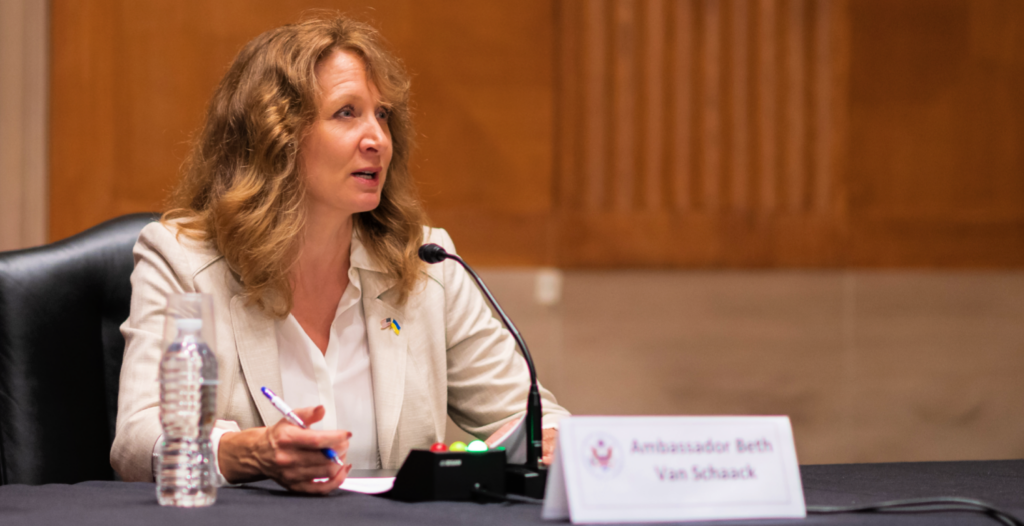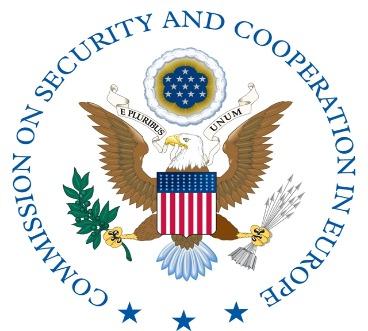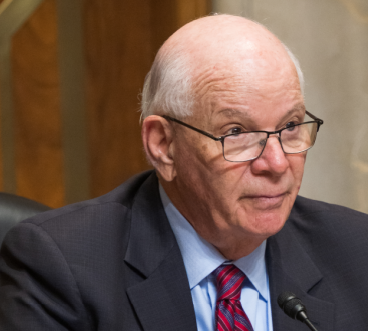Warsaw, Poland – The following statement on the Prevention of Torture was delivered by the United States at the Human Dimension Implementation Meeting of the Organization for Security and Cooperation currently being held in Warsaw, Poland:
Prevention of Torture
Statement of M. Wells
U.S. Delegation to the OSCE Implementation Meeting
In the wake of the September 11 attacks on my country, there has been a vigorous public debate about the methods and means that should be used to fight terrorism. Virtually every day since, major American newspapers have reported on this issue.
Some commentators have gone so far as to suggest that torture might be a necessary evil in the struggle for a larger good; they imagine a situation, for example, where torture might be used to extract information critical to thwarting a terrorist attack.
Please let me be clear regarding the United States position. Torture is antithetical to the rule of law that is the basis of the open, democratic societies that the OSCE seeks to foster. Consequently, it makes no sense to wage war to defend our democratic principles with methods that would denigrate the very values we seek to protect and promote. Cruel and unusual punishment is unconstitutional, barred by the laws of the United States OSCE participating States must work tirelessly to eradicate torture, to provide procedural and substantive safeguards and remedies to combat these practices, to foster the treatment of torture victims and their families, and to ensure the punishment of those who perpetrate torture.
Unfortunately, torture and other forms of cruel, inhumane and degrading treatment remain a serious problem in many countries. Moreover, the insidious practice of racial profiling, whereby law enforcement personnel unfairly single out racial or ethnic minorities, leaves minorities more vulnerable to police abuse. Such practices severely erode community confidence in police and other law enforcement bodies.
Torture or other abuse is often symptomatic of poor and inefficient law enforcement. When police lack the skills, training and resources to investigate crime properly, they may resort to extracting forced confessions to make their cases, rather than relying on real evidence. As a result, innocent people may go to jail for crimes they haven’t committed, while the real criminal walks free.
My delegation is particularly concerned by this pattern in the Republic of Georgia, where torture and other forms of abuse by law enforcement personnel remains widespread, accompanied by a climate of impunity and fostered by corruption. There have been several signs in the past that the Government of Georgia was about to undertake serious measures to address this persistent problem. Regrettably, each prospect of reform seems to have dissolved into disappointment and, in fact, the problem of torture may actually be growing more acute. We urge the Government of Georgia to transform its promises of related reform into real change.
It is not easy, of course, to second-guess the very people who are tasked with protecting the public, protecting us. But, when law enforcement personnel turn from protectors into tormentors, confidence in the very system of justice suffers, and the long-term costs to society can be enormous. It is not a coincidence that, in recent years, race riots in the United States have typically been triggered by a loss of confidence in law enforcement.
In Tajikistan, where the use of torture is prevalent, several senior law enforcement officials were convicted in July 2002 on charges of securing confessions under physical pressure. This is a welcome effort to hold perpetrators accountable. We urge the Slovak Government to press ahead with its efforts to hold fully accountable those responsible for the death of Karol Sendrei, a Romani man who died last year after being chained to a radiator for 12 hours while in custody and beaten by police.
In certain insidious cases, torture is employed not merely by rogue elements among law enforcement or security personnel or due to a lack of appropriate training among law enforcement personnel, but is systematically used to silence political opposition, punish religious minorities, and target those who are ethnically or racially different from those in power.
This is clearly the case in Uzbekistan where, in the worst cases, the victims are not merely tortured; they are tortured to death. Most recently, Muzafar Avazov and Khusnuddin Olimov joined the list of others who have gone into the custody of Uzbek officials alive, but who have been returned to their families dead. In hundreds of cases, convictions in Uzbekistan have been obtained through forced confessions. We urge all OSCE participating States to treat confessions and other evidence obtained through the use of torture as inadmissible in legal proceedings.
Like others, my delegation was heartened to learn in February that four Uzbek police officers had been sentenced to 20 years for their role in torturing a man to death in detention. If that case were intended to demonstrate that torture in Uzbekistan would not be tolerated, it failed to have that effect. Those who have been targeted for arrest because of their religious or political views continue to face particular risks of being tortured and are at risk of not surviving their imprisonment. We urge the Uzbek Government to investigate the many other cases of those who have died at the hands of state authorities and immediately release those who are in jail for their religious or political views, including Rahima Ahmedalieva, Imam Abduvahid Yuldashev, Yusup Jumaev, Mamadali Makhmudov, and Elena Urlaeva.









